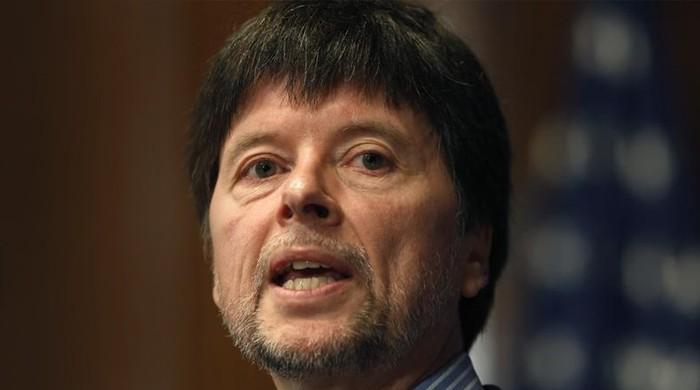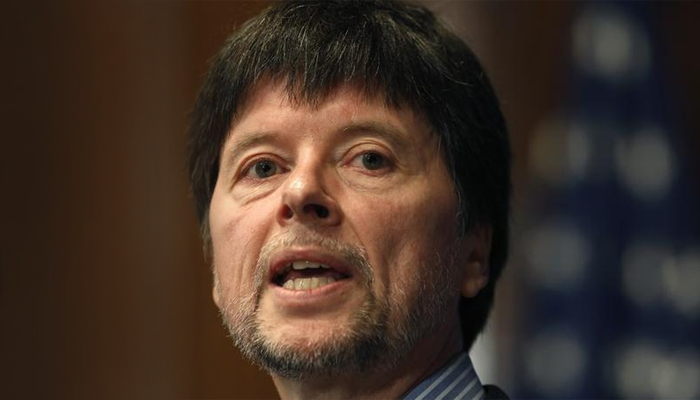

PARIS: Half a century after the United States plunged into war in Vietnam, scars remain unhealed. With a 10-part television epic, Ken Burns is hoping for a fuller understanding.
The celebrated documentary filmmaker has invested 10 years into making The Vietnam War, which aims to offer a more balanced view on the still divisive conflict by bringing in a wide range of American and Vietnamese voices.
"In many ways, the Vietnam War was our second civil war," said Burns, who won awards for his 1990 documentary on the 1861-65 US Civil War.
"I think that in the US, Vietnam is still very unsettled, and a source of a great deal of division. And I think so too in Vietnam," he told AFP.
The series — set to a hypnotic score by members of industrial rockers Nine Inch Nails — is starting to air Sunday on US public broadcaster PBS. It will also be broadcast, in slightly condensed form, on the French-German channel Arte from Tuesday.
Burns, who co-directed The Vietnam War with Lynn Novick, called the $30-million project — reviewed at all stages by two dozen historians — the most ambitious of his career.
"I feel an incredible sadness that the process is over," the 64-year-old Burns said.
'Multidimensional portrait'
Burns said the television epic was "in some ways like a Russian novel, an epic sweep across generations with lots of primary characters, secondary and tertiary characters".
As expected, Burns brings in decision-makers and rank-and-file soldiers. But he also found it vital to speak to people who did not fight in the war, which set off a protest movement in the United States whose divisions can still be felt today.
"Courage could not always be on the battlefield," he said. "It could be the decision not to go to war, to protest that war."
"But also, most importantly," he said, was including "the voices of the Vietnamese, both our enemies and our allies, civilians, and to have a much fuller multidimensional portrait".
According to the Vietnamese government, more than three million civilians died in over the span of the war, along with over 2.5 million troops fighting for both the triumphant communist North and the US-allied South.
US official figures say that 200,000 South Vietnamese and 58,200 US soldiers died and 1,638 GIs remain unaccounted for.
"When the Americans talk about the Vietnam War they talk only about themselves and that is limiting. We were obligated to include all these other voices," he said.
Burns said he was struck by the parallels when speaking to US troops and communist Viet Cong forces about their war experiences.
"I think that if the Vietnamese are able to see the film, they're going to learn a lot, not just about us, not just what went on in the USA and the divisions, but as real human beings — as I hope that our American audience will begin to see the Vietnamese as real human beings who suffered an awful lot like them."
New openness among Vietnamese
Making The Vietnam War, Burns and Novick collected an extraordinary quantity of archives, including more than 25,000 photographs and previously-unreleased recordings from presidents Lyndon Johnson and Richard Nixon.
"We edited for years and years — I'm even surprised it didn't take longer," Burns said.
The film team went on two trips to Vietnam to interview veterans, who have far fewer opportunities than their US counterparts to express themselves publicly. Burns found startling frankness.
"They're old enough, they're celebrated enough. They are at the end of their lives. It is possible now to relax a bit from the hard party-line. There's a kind of immunity that an old soldier gets," Burns said.
Music was also a critical component of the film. Nine Inch Nails frontman Trent Reznor and Atticus Ross — his collaborator who has scored films such as The Girl with the Dragon Tattoo — composed original music for The Vietnam War that is being released as a double-album.
Burns called it an "extraordinary combination of cold metallic electronic sound mitigated with a very beautiful melodious sensibility".
The documentary also brings in a composition by Chinese-American cellist Yo-Yo Ma and his Silk Road Ensemble that evokes Vietnamese traditions.
"I think war offers us an opportunity to study human behaviour at its worst obviously but also at its best. And that's what we tried to cover," Burns said.
No comments:
Post a Comment